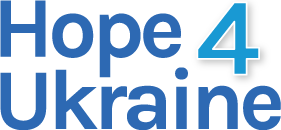Just a little history...
“The Russian Mennonites Who Came to Florence”
-a short excerpt-
Prepared for a class in History of Kansas
at Kansas State University
by Leslie B. Allison
Fall, 1965
The expense of coming across to the United States was planned to be defrayed by the American Mennonite Church. It formed the Board of Guardians on December 2, 1873 at Summerfield Ill. to provide financial and other assistance to needy Mennonite immigrants from Russia. The Mennonite Executive Aid Committee was another structure set up in April of 1874 for the purpose of overseeing all immigration and assistance to incoming Mennonites. There were local aid committees in most of the states also. Many Mennonites come from Homburg to New York and Penn. via the Inman Stream Ship Line and the Red Star Line.
The Streamer Vaterland brought 700 Russian Mennonites to Philadelphia on December 25, 1874. 500 of this group have been mentioned already in this paper; they were the 90 families of the Tobias Unruh Church. The people in this group were the exception to the usual immigrants. They were very poor and could not even buy bread to eat. Provisions were made in Bucks, Montgomery, and Lancaster counties to give them shelter and to keep them until spring.
To conclude, here are some words from a letter to Cornelius Janzen from a committee of the Board of Guardians in the spring of 1875:
“We work with one goal in mind; namely that of helping each other so that we may be worthy of God’s call and not hinder his work. The hope that a burning fire of love will be our protection, and a strength for unity.”
Moving From history to present...
Many congregations are considering hosting Ukrainian refugees now again in 2022. Hosting can be a rewarding time but can also be scary as you think of bringing unknown individuals and families into your homes and communities. Not all situations will turn out perfect. Having a low expectation is one possible approach. Then you can be pleasantly surprised if the situation turns out to be a positive experience for you and your congregation. We shouldn’t expect immediate results. Remember, these people have likely been torn away from their homes and families. Some may have experienced severe trauma and even be grieving the death of loved ones. They may not be religious or even be interested in attending church. Most will likely respond to your love in some way or another, and you may make lifelong friends. Some will find our North American rural life too quiet and want to move to the city. Others may love our small “villages” and back roads. They will become lonesome for eastern European foods, and if you are lucky, you will get to experience some of their favorite tastes like borscht, oliviye, piroshki, and varenyky. We have prepared this page to help you with some of your questions. Thanks in advance for your help in the hosting and sponsoring efforts.
Resources for Canadian hosting
This site gives a good overview of the immigration process for Canada
Resources for United States hosting
- This site gives a good overview of the immigration process for USA
- This site is where you will find I-134 statement of support
- This site gives information about health care in the USA for refugees.
Language challenges
Does the language barrier look like a challenge to you? Well it very well could be but, with the use of technology it becomes manageable. Please choose your app from the link below for a personal translator on your phone.
Additional study
This book explores the nuances and challenges of navigating the differences in culture and language between our countries.

